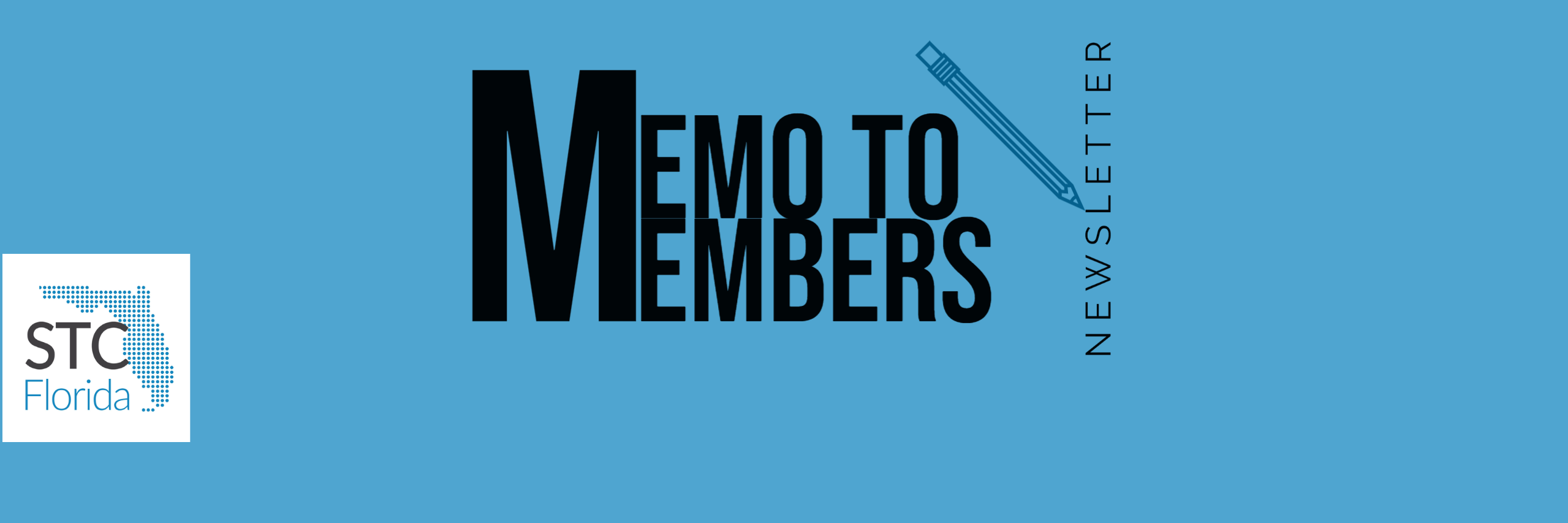Learning About… Learning! January’s Topic is DITA and Beyond.
By: Jonathan Neal
Staff Writer, Memo to Members
“Please take out a pen and paper!”
Rob Hanna’s instructive DITA webinar begins with mental exercise. L’horreur! But there is no way around it. If we truly wish to communicate content to our readers, we must first learn about learning.
On January 19th, the Orlando Central Florida (OCF) chapter of STC held its monthly meeting at the IHOP on University Boulevard. Those in attendance viewed STC fellow Rob Hanna’s webinar, Leveraging Cognitive Science to Improve Topic Based Authoring. Mr. Hanna is president of Precision Content Authoring Solutions Inc., and with over 20 years’ experience under his belt, he knows his way around information writing. Here is a brief summary of his lesson:
Overview
The amount of data we encounter every day is increasing at a rapid rate, roughly doubling every two years. Therefore, we as technical writers must help our readers digest large amounts of data with minimal cognitive strain. One way we can accomplish this is by employing Darwin Information Typing Architecture (DITA).
DITA is an XML vocabulary that enables readers to digest data more easily. For the uninitiated, XML is a metalanguage akin to HTML that we can use to “mark up” data with custom tags and distribute it to any number of separately formatted files, fully accessible across systems. In effect, XML enables us to “repurpose information instead of rewriting it,” which saves time and effort. Rob Hanna has mastered this efficient strategy by establishing his own “content standards for the enterprise,” which he uses to systematize all of the XML he works with. This doesn’t just help him stay organized—it also helps his readers digest the data more easily.
Topic Types and Memory Types
In DITA, there are 3 major topic types, each associated with a different type of memory:
| Topic Type | Associated Memory Type |
| Concept | Semantic Memory (conscious understanding via study) |
| Task | Procedural Memory (subconscious understanding via repetition) |
| Reference | Working Memory (forgotten quickly) |
Technical writers can use this knowledge to compartmentalize content according to topic type, thereby reducing cognitive strain. Mr. Hanna refers to this process as “pre-digesting” or “chunking” information for readers to absorb. In some cases, this can double the amount of information readers are able to retain. Pretty good, wouldn’t you say?
DITA and Beyond
Not all companies use DITA the same way, and that is why Rob Hanna emphasizes the importance of finding a balance. Pre-existing style guides may favor a different approach. If it works for the target audience, all is well; if not, then it may be time for a revision. If possible, try to incorporate the 4 fundamental needs for retention: consistency, chunking, relevance, and labeling.
Rob Hanna has developed a further-improved XML vocabulary, one that adapts information mapping principles and combines them with the pre-existing DITA formula. He adds two “precision content” topic types: process and principle. Each of his five information types is compartmentalized, fully taking advantage of XML’s custom tagging functionality. We may use this formula or develop our own—this is a freedom afforded to us by DITA and XML. To learn more, you may visit learningdita.com for some free online courses on the subject.
Closing
February’s meeting will cover the Columbia disaster and the ethics surrounding it. Stay tuned for more, and until then, good luck and happy writing.
PSA #1: Congratulations to Emily Wells, who is now co-manager of the mentoring program with Dan Voss!
PSA#2: 2018’s STC Summit will be in Orlando, FL. The event takes place at Hyatt Regency Orlando on I-Drive, the hotel formerly known as Peabody Orlando. We are looking for volunteers to help table the event. If you are interested, please contact STC Orlando’s president Alex Garcia via this email: president@stc-orlando.org
